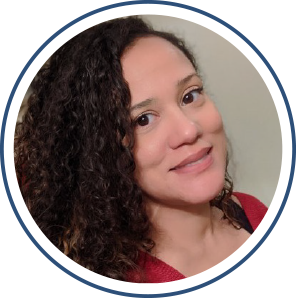DEI SPOTLIGHT
Whistling Multilingual
Written by: Glennis Lizardo
As a Hispanic woman, I've taken in a lot of new learning from our organization’s DEI trainings. As educators and lifelong learners, I’m sure we have all embarked on our own self-reflective journeys. Most recently, I've widened my focus to reflect on the implications of the DEI work and how I support multilingual learners and their teachers.
After the All-In training with Dr. Gholdy Mohammad (author of Cultivating Genius: An Equity Framework for Culturally and Historically Responsive Literacy), I thought deeply about the multilingual learner’s genius. I thought about the process of translanguaging, when learners manage the various linguistic resources they naturally possess in order to communicate, a phenomenon also evident among speakers of African American Vernacular English.
In my experience, I have felt that bilingualism has traditionally been treated as perhaps an unavoidable, less-desired outcome of the teaching of Standard American English. As I ponder this, I think back to a conversation I had years ago with my then 4-year-old niece. It was more of a speech, as she went on for almost 20 minutes to describe her experience as a new preschooler. It went something like this, “I jugando con mis friends, yo have a picnic to comer apple, and then go picina con mi sister.” It was fascinating to hear.
As a language teacher, my first thought was that I should correct her by paraphrasing what she said, and hope that she would notice that I implicitly emphasized a correctly formulated English sentence. Then, after reaching for my cell phone, I thought I should record this and analyze it later, while thinking to myself, even the father of modern linguistics, Noam Chomsky, would have a field day listening to her. Finally, as she continued to pour her heart out, I realized that she was quite proud of what she had to say. She was communicating freely with her auntie, who she saw maybe once or twice a year. Most importantly, we were connecting. I understood the meaning behind everything she said, and I surely understood that correcting her would have put a damper on her precious speech by invalidating her risk-taking with the use of both languages.
Sadly, I think back to this moment and consider how multilingual children are expected to code-switch as soon as they start school. They learn to adopt English as the “important” language, and have to conform to a dominant culture that often does not embrace multiculturalism – I recommend a poignant Ted Talk by Chandra Arthur, The Cost of Code-Switching. As so powerfully echoed in Arthur’s TED Talk, I recognize the need to prepare children to code-switch to meet the standards of monolingual policies, however, I also realize the potential effects of this on the identities of children.
It is not just verbal language that we expect students to learn in order to fit in. I think about social pragmatics and the less-explored pragmatic cueing system in reading as it relates to the ever-present challenges multilingual learners contend with in order to understand what they read in English, and in order to be understood as new English learners.
As teachers, we certainly should take this into account as we prepare multilingual and multi-cultural children to meet the standards that we hold when evaluating and judging them. In that vein, I have made some personal connections with the concepts discussed in Claude Steele’s book, Whistling Vivaldi: How Stereotypes Affect Us and What We Can Do. In fact, I have begun to realize the day-to-day psychological impact that code-switching can have on people to avoid stereotype threat.
In many cultures it is common to use body language as a form of expression during conversation. Twenty years ago, as a young Hispanic woman, I remember sitting on my hands when interviewing because using your hands to speak was considered unseemly in the corporate setting. Mainstream societal standards require those of us who exist in the margins to code-switch every day to fit in and thrive; this comes at a cost.

Written by:
Glennis Lizardo
PD, New Jersey
Get Updates!
Ensure you stay up-to-date with the latest news, impact reports, donor events, and much more.
